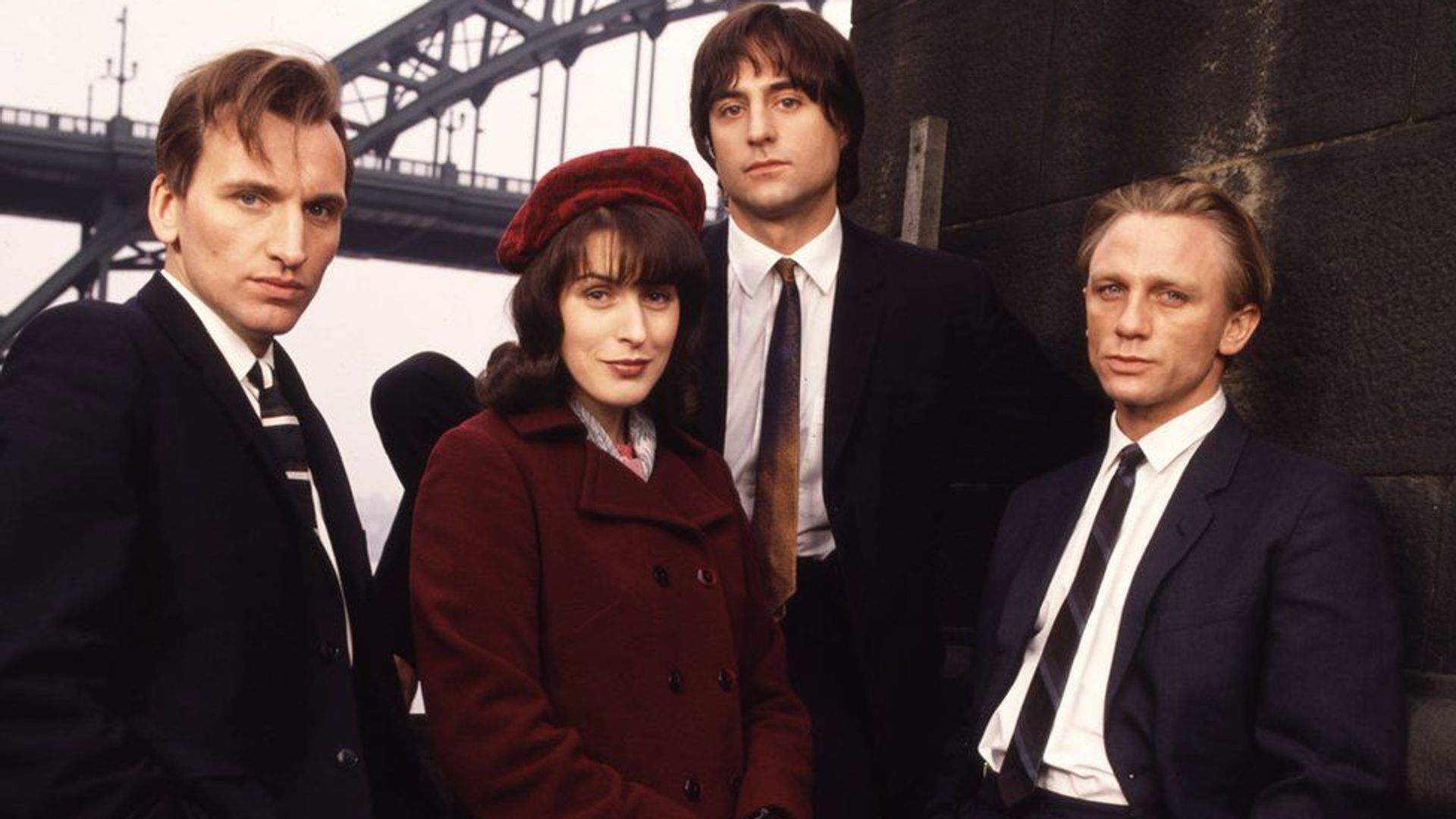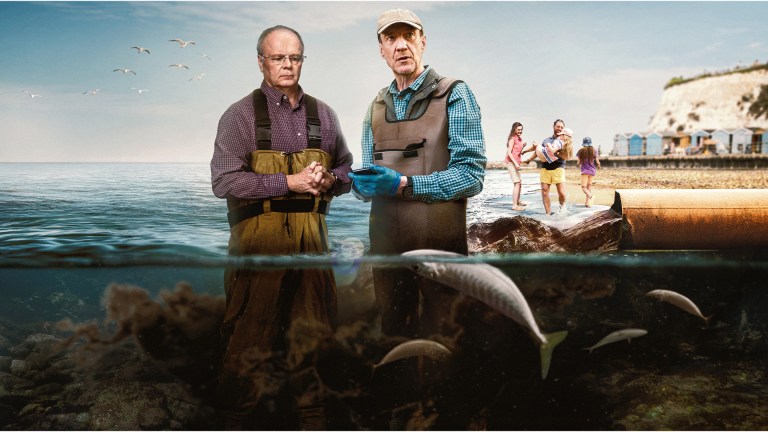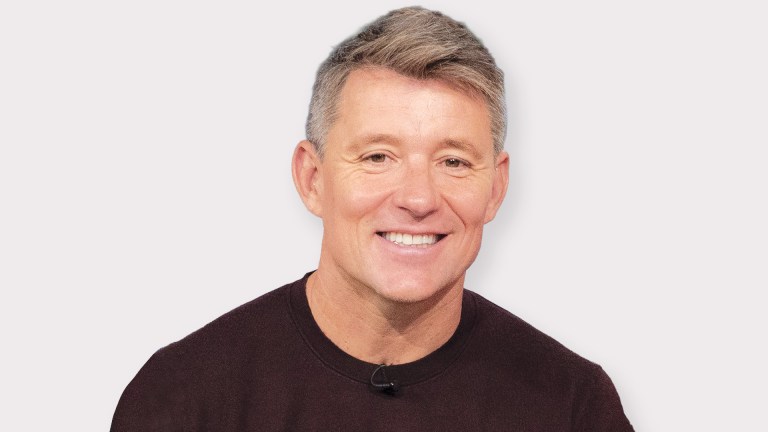His expanded vision for the series brought it right up to date. Britain was on the verge of a new era, and Our Friends Of The North captured a country on the precipice of change.
It chimed hard with the public, which was ready for a new direction. Tony Blair was, by this point, leader of the Labour Party. Change was coming. Green shoots of optimism could be found.
Our Friends In The North was the right show at the right time – the final episode even feature Oasis’s single Don’t Look Back In Anger, which hit number one the same week it aired.
Get the latest news and insight into how the Big Issue magazine is made by signing up for the Inside Big Issue newsletter
The series made stars of its young central cast. Daniel Craig, Christopher Eccleston, Gina McKee and Mark Strong produced powerhouse performances that established them as real heavyweights. All have gone on to great things. And they were supported by some of the finest actors around – Alun Armstrong as local politician Austin Donohue, Peter Vaughan and Freda Dowie as Nicky’s parents Felix and Florrie Hutchinson, Malcolm McDowell as Soho sleaze-lord Benny Barratt, David Bradley as Hutchinson family friend and politician Eddie Wells, and Donald Sumpter as a police chief.
The series showed people navigating changing times. Some did well. Others suffered. Geordie was failed first by his family, then by society – his slide into poverty and homelessness superbly played by future Bond star Daniel Craig.
Advertising helps fund Big Issue’s mission to end poverty
Nicky’s unwavering political idealism came in and out of fashion through the years portrayed, while his difficult relationship with his father showcased Christopher Eccleston’s intensity, his searing honesty as an actor, but also the fragility he is able to expose behind those piercing eyes. Eccleston was originally wanted for the role of Geordie, preferring Nicky due to the political aspect of the character.
“Nicky was an awkward bastard,” Eccleston says now. “Which is why I was such great casting – because I was, and remain, an awkward bastard.”
By contrast, Mary (Gina McKee) played the political long game – less headstrong than Nicky, forging alliances, able to compromise. Let down in relationships with Tosker and Nicky, she finds fulfilment in local politics. Plays the long game. One can imagine her sitting in Parliament through the Blair and Brown years, but also as a Labour grandee during the Corbyn and Starmer era. McKee’s cool, subtle brilliance on screen has been a mainstay of British film and television ever since.
Mark Strong, speaking to the Big Issue last year, said: “Our Friends In The North was a turning point for me. It was the range and the scope of it, and the genius idea of having four individuals whose stories you followed through the political history of the country. I don’t think you could have sold the political side on its own, because a lot of it is the story about post-war Labour housing policy. And who’s gonna watch that? But it was such a state of the nation piece. From the late 1960s through to the 1990s – from Harold Wilson through to Margaret Thatcher – and everybody had experienced one part of that history.”
There is never a bad time to revisit great British dramas. But there could be no better time than this. Our Friends In The North is about change. Changing times, changing politics, changing governments, changing people – about the evolution of a country and its people.
Would the politics that flows through every line of Our Friends In The North have made it too divisive, too risky to commission?
And Britain is in the midst of great change. There is, of course, the death of Elizabeth II and the mourning for the end of an era. There is also the very real possibility of political change at the next General Election – just as there was when Our Friends In The North aired in 1996 as John Major’s government limped towards its end.
Advertising helps fund Big Issue’s mission to end poverty
Watching it now, it also serves as both a celebration and a challenge to the BBC. A celebration, as part of the corporation’s centenary, reminding us of the breadth of brilliance produced by the BBC. A back catalogue like the BBC’s needs regular airing – and if BBC4’s budget has been slashed in recent times, if they are able to mine more of the greatest hits more regularly, that will soften some of the blow.
But watching Our Friends In the North also feels like a challenge. It would not be made now. Not like this. Sure, it could probably have been made in eight episodes instead of nine, and the lengths could have been equalised to fit the more rigid TV schedule of today. But would the content have been picked up? Would Peter Flannery’s vision have been supported? Or would the politics that flows through every line of Our Friends In The North have made it too divisive, too risky to commission? Because these are shows we need – and these are shows the BBC needs to continue to make in its second century.









